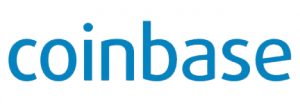Bitcoin Year In Review: 9 Most Salient News Stories of 2015
 As everybody is also saying, bitcoin had a much better year compared to the previous one. In 2014, bitcoin was the world’s worst-performing currency, losing more than 57 percent of its value against the US dollar, while the cryptocurrency ended 2015 as the world’s best-performing currency, gaining almost 40 percent.
As everybody is also saying, bitcoin had a much better year compared to the previous one. In 2014, bitcoin was the world’s worst-performing currency, losing more than 57 percent of its value against the US dollar, while the cryptocurrency ended 2015 as the world’s best-performing currency, gaining almost 40 percent.
What caused this impressive year-end for the digital currency is seemingly a restored trust in it apparently stemming from a combination of good news happening over the year, but the virtual currency had not been without its share of bad news this past year either. Below, we revisit 2015’s most significant bitcoin news stories.
 Coinbase raises $75 million in Series C round
Coinbase raises $75 million in Series C round
On January 20, 2015, bitcoin wallet and not-yet exchange company Coinbase announced it had raised $75 million in Series C round, bringing its total capital raised to $106 million. The round represented the largest venture capital round to date for a bitcoin company. Among the investors were the New York Stock Exchange, the United Services Automobile Association, and BBVA, a large multinational bank. The announcement was perfectly-timed, as bitcoin’s price had dropped in recent months. Following the announcement, the price started rising from the next day, as can be seen in the CoinDesk bitcoin price index chart showing the digital currency price variation from January 20 to February 20 below (click on the image to enlarge).
Although after reaching $271.95 on January 26, the day Coinbase announced the launch of its bitcoin exchange, which was first US-based bitcoin exchange, the price started going down till January 31, when the price hit the low of $216.91, it never hit the lowest of $210.48, which was before the announcement of the Series C round on the same day, again for the rest of the 32-day period.
Regardless of these fluctuations in price, the news of such a serious funding as $75 million raised in a financing round by a bitcoin firm at the start of the year and, by February 5, investments made into other bitcoin firms set the stage for a better year ahead for bitcoin. Later on March 10, the news that bitcoin startup 21 Inc. revealed it had received the industry record funding of $116 million over multiple rounds in the past only made the future of bitcoin look more promising.
 Bitstamp suspends services after losing $5 million in BTC in breach
Bitstamp suspends services after losing $5 million in BTC in breach
Early in January 2015, Slovenia-based bitcoin exchange Bitstamp temporarily suspended its services, saying it believed one of its operational wallets had been compromised. The next day, the exchange elaborated on the issue, saying some of its operational wallets had been compromised resulting in a loss of less than 19,000 BTC, worth around $5 million. Still, hackers were able to access only a small portion of Bitstamp’s entire assets, as the exchange stored most coins on local hard drives, not online. Bitstamp resumed services four days after suspending operations.
 Blockchain reaches 3-million wallet milestone
Blockchain reaches 3-million wallet milestone
London-based digital wallet provider Blockchain (not the technology behind bitcoin) announced on February 25 that it had passed the three million wallets-mark. CEO Peter Smith said the milestone had been achieved because of “unique users” who were registering in nations like Argentina and emerging markets “on the periphery of the eurozone,” places where trust in the local financial system had been tarnished by crises. The company reported a huge growth in transaction volumes, saying that more than $270 million in bitcoin transactions took place via its wallets within the past week – which was an industry record, and represented a 200 percent increase from the same week a year ago.

Shinagawa Seaside Rakuten Tower (the head office of Rakuten, Inc). Higashishinagawa, Shinagawa-ku, Tokyo, Japan.
Japanese e-commerce firm Rakuten starts accepting bitcoin
Rakuten, the largest Japanese e-commerce site and among the world’s largest by sales, announced on March 17 that it was going to allow customers to choose bitcoin as a payment option by integrating bitcoin payment processor Bitnet’s platform on a number of its marketplaces, starting from Rakuten.com in the United States, followed by its marketplaces in Germany and Austria. Rakuten said its integration with Bitnet’s platform will make it one of the largest e-commerce companies in the world to start accepting bitcoin. The site’s announcement, towards the end of the first quarter of 2015, I believe played its part toward a better year ahead for bitcoin.
Telecom firm Orange looking to invest in Silicon Valley bitcoin startups
It was reported on April 9 that French multinational telecommunications organization Orange SA was looking to invest in bitcoin startups in the months ahead. The news revealed Orange SA as one of the first big global phone carriers that had become interested in getting involved in the bitcoin space. Georges Nahon, CEO of Orange Silicon Valley, a division of Orange SA, said that they wanted to be “there as early as possible” because “There’s something intriguing in this technology.” Nahon told Bloomberg that his division had been holding bitcoin events at its office in San Francisco and was talking to two bitcoin firms, adding the group could invest $20,000 per startup and was part of an international team that could spend up to $3.2 million per company. After recently expanding its venture capital effort with the launch of Orange Digital Ventures, the organization had said in March its goal was to have supported 500 startups worldwide by 2020. The news was obviously big; a multinational telecommunications organization becoming one of the first global phone carriers interested in bitcoin was something that hinted that bitcoin’s better years could very possibly lie ahead.
New York Stock Exchange announces bitcoin index
On May 19, the New York Stock Exchange (NYSE) announced the NYSE Bitcoin Index (NYXBT), the first exchange-calculated and disseminated bitcoin index. The NYXBT would represent the U.S. dollar value of one bitcoin based upon actual transactions that occurred on select bitcoin exchanges that had been evaluated and had met the NYSE’s quality standards. NYSE Group president Thomas Farley said that bitcoin values were quickly becoming a data point that the customers wanted as they considered transacting, trading or investing within this emerging asset class. The NYXBT soon went live and has since also been enabling NYSE investors to see if investing in bitcoin could be for them, in addition to of course serving as a tool to allow derivatives trading.
New York unveils final BitLicense framework
Benjamin Lawsky, the outgoing superintendent of the New York Department of Financial Services (NYDFS), announced on June 3 the release of the department’s final BitLicense, which was/is a framework for regulating digital currency companies in the state of New York. Lawsky said that under the BitLicense, companies would need prior approval only for material changes to their product or business model, not for standard software or application updates. He clarified the department did not intend to be a regulator of software developers, but only of financial intermediaries. Lawsky said the framework would not require:
- a duplicate set of application submissions for companies that wanted both a BitLicense and a money transmitter license,
- a duplicate set of reports for companies that already filed suspicious activity reports with financial regulators, and
- prior approval from the department for every new round of venture capital funding.
The framework finally regularized virtual currency firms in the New York State, and today, to open and operate a digital currency business in the state, obtaining the BitLicense from the NYDFS is mandatory.
 NYDFS issues first BitLicense to Circle
NYDFS issues first BitLicense to Circle
On September 22, the NYDFS announced it had approved Boston, Massachusetts-based Circle Internet Financial Ltd.’s BitLicense application, making the bitcoin company become the first to receive the license. Anthony J. Albanese, the NYDFS’s acting superintendent, said in a press release that issuing the first BitLicense was an important milestone in the long-term development of the digital currency industry. He added that “putting in place rules of the road that help protect consumers from loss or theft and root out illicit activity is vital to building trust in this new financial technology. We will continue to move forward on evaluating and approving additional BitLicenses.”
Winklevoss twins announce launch of bitcoin exchange Gemini
The Winklevoss twins, Cameron and Tyler Winklevoss, announced on October 5 that Gemini, their bitcoin exchange, had opened its doors to both individual and institutional customers. The announcement of the launch came immediately after Gemini announced it had been granted a license to operate as a chartered limited liability trust company by the New York State Department of Financial Services. The twins, of the Winklevoss Twins vs. Facebook lawsuit fame, first announced Gemini back in January. At the time of the launch, Gemini operated in 26 US states. As of today, the exchange is available and open for trading in 30 states, with the rest of the 21 states allowing the exchange to operate as soon as possible.
The first news story that we published in 2015 was about New York City’s financial department exploring alternative payment methods for parking tickets. Apple Pay, PayPal and bitcoin were among the prospective methods. While NYC has still not offered any alternative method(s), the news about the city government of the most populous US city, which issued eight to 10 million parking tickets annually, considering bitcoin, which had, and still has, no to small transaction fee, for parking ticket payments was significant, considering violators had to, and still have to, pay 2.5 percent convenience fee when making the payment online via debit or credit cards.
The final story that we published this past year was about international mobile payments processing network Boloro announcing it had chosen Ribbit.me‘s universal blockchain-based loyalty industry platform to provide its merchant partners with a loyalty solution.
Those were 2015’s nine of the most salient news stories, as well as the first and the final ones that we published, in bitcoin space. What does 2016 hold for the digital currency? Read the article “Bitcoin in 2016” by our content editor, Brian Worley, coming up shortly.
Have a great year ahead!
Image credits:
Bitcoin image – Public domain image by Web-dev-chris
Coinbase logo – Courtesy of Coinbase
Bitstamp logo – Image source
Blockchain logo – Courtesy of blockchain.info (see)
Rakuten head office – User:Kentin (CC BY-SA 3.0)
New York Stock Exchange – Ingfbruno (CC BY-SA 3.0)
Lawsky’s photo – Public domain image
Circle logo – Via their website’s news page
Winklevoss twins – Image source
















